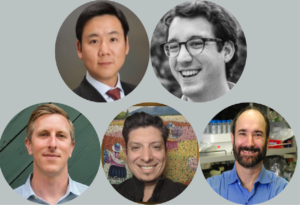
PHIND & CDH Seminar: “The Invisible Future of Health Monitoring”
Join Stanford CDH and PHIND on Wednesday, June 23rd at 3:15 PM PDT to hear some of the industry’s leading experts talk about embedded sensors, longitudinal data collection, the future of remote monitoring, and real-world applications of precision health technologies. The panel will feature: Nicolas Genain, MS, Withings; John O Moore MD, PhD, Fitbit Health Solutions at Google; Pablo Paredes, PhD, MBA, MS, Stanford University; and Michael Synder, PhD, Stanford University. The discussion will be moderated by Jun (Alex) Gao, MS, Samsung America.
Zoom Webinar Details
Webinar URL: https://stanford.zoom.us/s/96984014176
Dial: US: +1 650 724 9799 or +1 833 302 1536 (Toll Free)
Webinar ID: 969 8401 4176
Passcode: 375941
3:15pm – 4:15pm: Panel Discussion
RSVP Here
Sponsored by the PHIND Center and Center for Digital Health
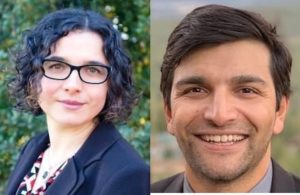
Radiology Department-Wide Research Meeting
• Research Announcements
• Mirabela Rusu, PhD – Learning MRI Signatures of Aggressive Prostate Cancer: Bridging the Gap between Digital Pathologists and Digital Radiologists
• Akshay Chaudhari, PhD – Data-Efficient Machine Learning for Medical Imaging
Location: Zoom – Details can be found here: https://radresearch.stanford.edu
Meetings will be the 3rd Friday of each month.
Hosted by: Kawin Setsompop, PhD
Sponsored by: the the Department of Radiology

PHIND Seminar Series: Plastic-based sensors for wearable technologies: fundamentals and applications
Alberto Salleo, Ph.D.
Professor of Material Sciences and Engineering
Stanford University
Zoom Webinar Details
Webinar URL: https://stanford.zoom.us/s/92646686705
Dial: US: +1 650 724 9799 or +1 833 302 1536 (Toll Free)
Webinar ID: 926 4668 6705
Passcode: 270341
11:00am – 12:00pm Seminar & Discussion
RSVP Here
ABSTRACT
The continuous monitoring of human health can greatly benefit from devices that can be worn comfortably or seamlessly integrated in household objects, constituting “health-centered” domotics. One of the key aspects for these devices to be successful is to be invisibly integrated and disappear in the background of our lives. Our group works on thin film devices made with plastic materials that can be used for electrochemically sensing of common analytes from easily accessible bodily fluids (e.g. sweat, saliva, urine) and can be easily multiplexed. I will describe electrochemical transistors that detect ionic species either directly present in body fluids or resulting from a selective enzymatic reaction (e.g. ammonia from creatinine) at physiological levels. I will also show that non-charged molecules can be detected by making use of custom-processed polymer membranes that act as “synthetic enzymes”. Using these membranes in conjunction with electrochemical transistors we demonstrate that we are able to measure physiological levels of cortisol in real human sweat. Importantly, transistors can amplify signals and I will show what architectures must be used to observe 1000x amplification of sensing currents.
Finally we have developed a process that allows us to fabricate sensor arrays on flexible substrates thereby opening the door towards ultra-thin, flexible sensor arrays for wearable technologies.
ABOUT
Alberto Salleo is currently Full Professor of Materials Science and Department Chair at Stanford University. Alberto Salleo holds a Laurea degree in Chemistry from La Sapienza and graduated as a Fulbright Fellow with a PhD in Materials Science from UC Berkeley in 2001. From 2001 to 2005 Salleo was first post-doctoral research fellow and successively member of research staff at Xerox Palo Alto Research Center. In 2005 Salleo joined the Materials Science and Engineering Department at Stanford as an Assistant Professor in 2006. Salleo is a Principal Editor of MRS Communications since 2011.While at Stanford, Salleo won the NSF Career Award, the 3M Untenured Faculty Award, the SPIE Early Career Award, the Tau Beta Pi Excellence in Undergraduate Teaching Award, and the Gores Award for Excellence in Teaching, Stanford’s highest teaching award. He has been a Thomson Reuters Highly Cited Researcher since 2015, recognizing that he ranks in the top 1% cited researchers in his field.
Hosted by: Garry Gold, M.D.
Sponsored by the PHIND Center and the Department of Radiology
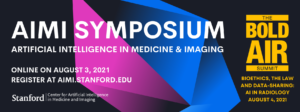
Stanford AIMI Director Curt Langlotz and Co-Directors Matt Lungren and Nigam Shah invite you to join us on August 3 for the 2021 Stanford Center for Artificial Intelligence in Medicine and Imaging (AIMI) Symposium. The virtual symposium will focus on the latest, best research on the role of AI in diagnostic excellence across medicine, current areas of impact, fairness and societal impact, and translation and clinical implementation. The program includes talks, interactive panel discussions, and breakout sessions. Registration is free and open to all.
Also, the 2nd Annual BiOethics, the Law, and Data-sharing: AI in Radiology (BOLD-AIR) Summit will be held on August 4, in conjunction with the AIMI Symposium. The summit will convene a broad range of speakers in bioethics, law, regulation, industry groups, and patient safety and data privacy, to address the latest ethical, regulatory, and legal challenges regarding AI in radiology.

PHIND Seminar Series: Peace of mind for those affected by stroke
Orestis Vardoulis, Ph.D.
Co-Founder & CEO
ZeitMedical
Zoom Webinar Details
Webinar URL: https://stanford.zoom.us/s/94427469356
Dial: US: +1 650 724 9799 or +1 833 302 1536 (Toll Free)
Webinar ID: 944 2746 9356
Passcode: 999031
11:00am – 12:00pm Seminar & Discussion
12:00pm – 12:15pm Reception
RSVP Here
ABSTRACT
There is a growing population of over 10 million Americans that live with an elevated risk of having a stroke.
Each year approximately 1 million Americans survive a stroke or a ministroke, often severely affected by its debilitating effects. A more disabling stroke frequently occurs after the seminal events, leaving patients and their families scarred for life.
TIME = BRAIN. Early hospital presentation is the most critical determinant in good stroke outcomes. However, most patients arrive at the hospital often hours after the event, with less than 10% receiving any form of treatment (thrombolysis / thrombectomy).
As a result, at risk individuals struggle daily with the fear, a stroke might happen during night-time or when they are alone. Unfortunately a stroke that goes unnoticed for hours, is most often not treatable due to the lack of salvageable tissue.
To alleviate that fear, we are creating an AI-powered, smart-headband that analyzes brain waves to detect the onset of an event immediately, and alert the patient, caregivers and 911.
Our stroke detection AI has already been shown to detect ischemia during high-risk surgeries with 90% sensitivity and no false positives.
We have received FDA breakthrough designation for our solution and are currently running a pilot human factors and signal quality study.
Our vision is to provide peace of mind and optimal brain health for everyone.
ABOUT
Orestis is the CEO and Co-founder of Zeit Medical, a telehealth company that offers at home monitoring and alert solutions for patients at risk for stroke. Prior to starting Zeit, Orestis was a Stanford Biodesign Innovation Fellow where his team developed the initial idea about at-home stroke detection. Orestis trained as a Mechanical Engineer, at Aristotle University, Greece, earned his PhD in Biotechnology and Bioengineering at EPFL, Switzerland and conducted cutting edge research in flexible wearable electronics with the Bao Group at Stanford Chemical Engineering. He has authored more than twenty publications in prestigious journals and has filed for a variety of patents at the intersection of materials technology and medical devices. Orestis currently lives in San Francisco, where he also contributes to the UCSF-Stanford pediatric device consortium as a technology advisor. He also maintains close ties with the med-tech and health-tech communities in Switzerland and Greece, contributing to regional Biodesign educational workshops.
Hosted by: Garry Gold, M.D.
Sponsored by the PHIND Center and the Department of Radiology
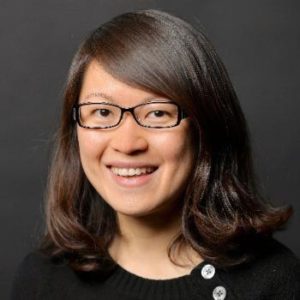
PHIND Seminar Series: Towards precision diagnostic and prediction of food allergy
Sindy KY Tang, Ph.D.
Associate Professor of Mechanical Engineering, Senior Fellow at the Woods Institute for the Environment and Professor, by courtesy, of Radiology – PHIND Center
Stanford University
Location: Zoom
Webinar URL: https://stanford.zoom.us/s/91932966334
Dial: US: +1 650 724 9799 or +1 833 302 1536 (Toll Free)
Webinar ID: 919 3296 6334
Passcode: 383071
11:00am – 12:00pm Seminar & Discussion
RSVP Here
ABSTRACT
Food allergy has reached epidemic proportions. Accurate in vitro methods that are efficient and easy to use to identify offending food allergens are lacking. Oral food challenge, the gold standard for food allergy assessment, is often not performed as it places the patient at risk of anaphylaxis. As such, food allergy is often identified only after an adverse reaction that could be life-threatening. Our long-term goal is to develop a food allergy diagnostic test that is accurate, safe, rapid, and accessible, so that food allergy can be easily identified prior to the occurrence of an adverse reaction, and that the efficacy of immunotherapy for food allergy can be tracked more effectively. This talk will discuss our recent work on developing such a test. Our approach is based on the Basophil Activation Test (BAT), which measures the activation of basophils in whole blood after stimulation with specific food allergens ex vivo. The BAT has been shown to be highly predictive of allergic reactions. However, the need for flow cytometry has limited its broader use. We are developing a miniaturized, standalone version of the BAT. We envision that the test can be used at the point of care, such as the doctor’s office or at a local pharmacy.
ABOUT
Prof. Sindy KY Tang is the Kenneth and Barbara Oshman Faculty Scholar and Associate Professor of Mechanical Engineering and by courtesy of Radiology (Precision Health and Integrated Diagnostics) at Stanford University. She received her Ph.D. from Harvard University in Engineering Sciences under the supervision of Prof. George Whitesides. Her lab at Stanford works on the fundamental understanding of fluid mechanics and mass transport in micro-nano systems, and the application of this knowledge towards problems in biology, rapid diagnostics for health and environmental sustainability. The current areas of focus include the flow physics of confined micro-droplets using experimental and machine learning methods, interfacial mass transport and self-assembly, and ultrahigh throughput opto-microfluidic systems for disease diagnostics, water and energy sustainability, and single-cell wound healing studies. She was a Stanford Biodesign Faculty Fellow in 2018. Dr. Tang’s work has been recognized by multiple awards including the NSF CAREER Award, 3M Nontenured Faculty Award, the ACS Petroleum Fund New Investigator Award, and invited lecture at the Nobel Symposium on Microfluidics in Sweden. Website: http://web.stanford.edu/group/tanglab/
Hosted by: Garry Gold, M.D.
Sponsored by the PHIND Center and the Department of Radiology

Regina Barzilay, PhD
School of Engineering Distinguished Professor for AI and Health
Electrical Engineering and Computer Science Department
AI Faculty Lead at Jameel Clinic for Machine Learning in Health
Computer Science and Artificial Intelligence Lab
Massachusetts Institute of Technology
Abstract:
In this talk, I will present methods for future cancer risk from medical images. The discussion will explore alternative ways to formulate the risk assessment task and focus on algorithmic issues in developing such models. I will also discuss our experience in translating these algorithms into clinical practice in hospitals around the world.
Keynote:
Self-Supervision for Learning from the Bottom Up
Why do self-supervised learning? A common answer is: “because data labeling is expensive.” In this talk, I will argue that there are other, perhaps more fundamental reasons for working on self-supervision. First, it should allow us to get away from the tyranny of top-down semantic categorization and force meaningful associations to emerge naturally from the raw sensor data in a bottom-up fashion. Second, it should allow us to ditch fixed datasets and enable continuous, online learning, which is a much more natural setting for real-world agents. Third, and most intriguingly, there is hope that it might be possible to force a self-supervised task curriculum to emerge from first principles, even in the absence of a pre-defined downstream task or goal, similar to evolution. In this talk, I will touch upon these themes to argue that, far from running its course, research in self-supervised learning is only just beginning.
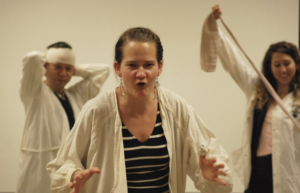
Alone in the Ring (a research-based theatre production about inclusive healthcare workplaces) is coming to campus during the Annual Stanford School of Medicine Diversity Week and National Disability Employment Awareness Month, SMAC and Stanford Medicine and the Muse hope to continue the discussion on how to spark and sustain change towards inclusive workspaces. Alone in the Ring is followed by a discussion between the team and audience members. During the presentation, audience members are encouraged to reflect: How inclusive is your workspace? How could you make it more accessible?
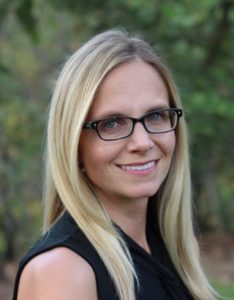
PHIND Seminar Series: Topic TBA
Christina Curtis, Ph.D.
Associate Professor of Medicine (Oncology) and of Genetics
Stanford University
Location: Venue coming soon!
11:00am – 12:00pm Seminar & Discussion
12:00pm – 12:15pm Reception
RSVP coming soon!
ABSTRACT
Coming soon!
ABOUT
Coming soon!
Hosted by: Garry Gold, M.D.
Sponsored by the PHIND Center and the Department of Radiology